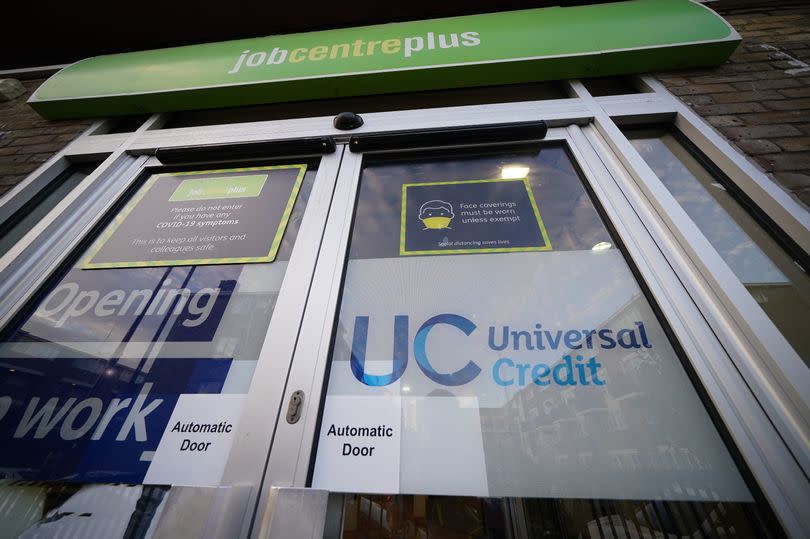DWP Universal Credit warning as 670,000 families to lose £4,300 a year in 'cruel' policy

The Institute for Fiscal Studies has warned that the number of children affected by the two-child benefit cap will increase by a third over the next five years.
This legislation restricts Child Tax Credit and Universal Credit primarily to the first two children in most homes. Currently, the limit impacts two million children, with more affected each year as it applies to those born after April 5, 2017.
Upon full implementation, one in five children will miss out on the benefits, escalating to 38% of those within the poorest fifth of households, according to the IFS study. It is projected that an additional 250,000 children will be affected next year, rising to 670,000 by the end of the next parliament if no policy adjustments are made, states the think tank.
The IFS study disclosed that 43% of children residing in homes where at least one individual is of Bangladeshi or Pakistani origin will be hit. Households affected will, on average, lose £4,300 annually, constituting 10% of their income based on the analysis, if nothing changes.
Read more: Most expensive supermarket now almost as cheap Aldi and Lidl for essentials
Neither the Labour nor Conservative party have committed to abolishing the two-child cap in their General Election manifestos. Campaigners have labelled the policy, introduced by the Conservatives in 2017 and that has historically been attributed to keeping children in poverty, as "cruel".
The introduction of the cap has contributed to an increase in the proportion of children in large families who are in relative poverty from 35% in 2014-15 to 46% in 2022-23, the study found. Meanwhile, during this period, poverty decreased for families with one or two kids, the IFS stated.
The research institute has indicated that the abolition of the two-child limit would cost the Government approximately £3.4 billion annually, which equals the costs of freezing fuel duties for the next term.
Eduin Latimer, a research economist at IFS, expressed: "The two-child limit is one of the most significant welfare cuts since 2010 and, unlike many of those cuts, it becomes more important each year as it is rolled out to more families."
Mubin Haq, who serves as the chief executive of the Financial Fairness Trust, which funded the research, voiced: "The limit has been a significant contributor to child poverty amongst large families during a period when poverty for families with one or two children fell."
He also stated: "If the next government is serious about tackling child poverty, it will need to review the two-child limit. There is an inherent unfairness in the policy as it affects only those children born after April 5 2017. The majority of families affected are in work or have caring responsibilities for disabled relatives or young children."
Alison Garnham, the chief executive of the Child Poverty Action Group, added: "Child poverty in the UK is a national disgrace and the biggest driver of it is the two-child limit. It makes life worse for kids up and down the country and limits their future chances.
"Children affected by child poverty don't have a voice in this election but politicians from all parties have a responsibility to them to show leadership. Any government serious about making things better for the next generation will have to scrap the two-child limit, and do so quickly."
Paul Carberry, Chief Executive of Action for Children, said: "Here is yet more shocking evidence of the huge scale of the damage being caused to children and families by the cruel two-child limit, which is well known to push families into poverty and, which if scrapped, would lift 300,000 children out of hardship.
"The election presents an opportunity for bold and ambitious action to be taken and for all political parties to commit to ending child poverty once and for all. That must include an increase to the child element of Universal Credit and scrapping the two-child limit and benefit cap.
However, the SNP's spokesperson for social justice, David Linden, laid blame at the feet of Labour, arguing that their policies would "push thousands of Scottish children into poverty".
"It's utterly disgraceful and it shows why it's vital to vote SNP to reject Starmer's cuts, tackle child poverty and put Scotland's interests first," he said.
"The SNP has put eradicating child poverty at the heart of our election campaign. We've lifted 100,000 children out of poverty with progressive policies like the Scottish Child Payment and Best Start Grant and we're demanding action at Westminster, including an emergency budget to scrap the two-child cap, raise universal credit, and abolish the bedroom tax.
"It's shameful the Labour Party is wedded to welfare cuts and Brexit policies that will make child poverty and the cost of living even worse."

 Yahoo News
Yahoo News 
